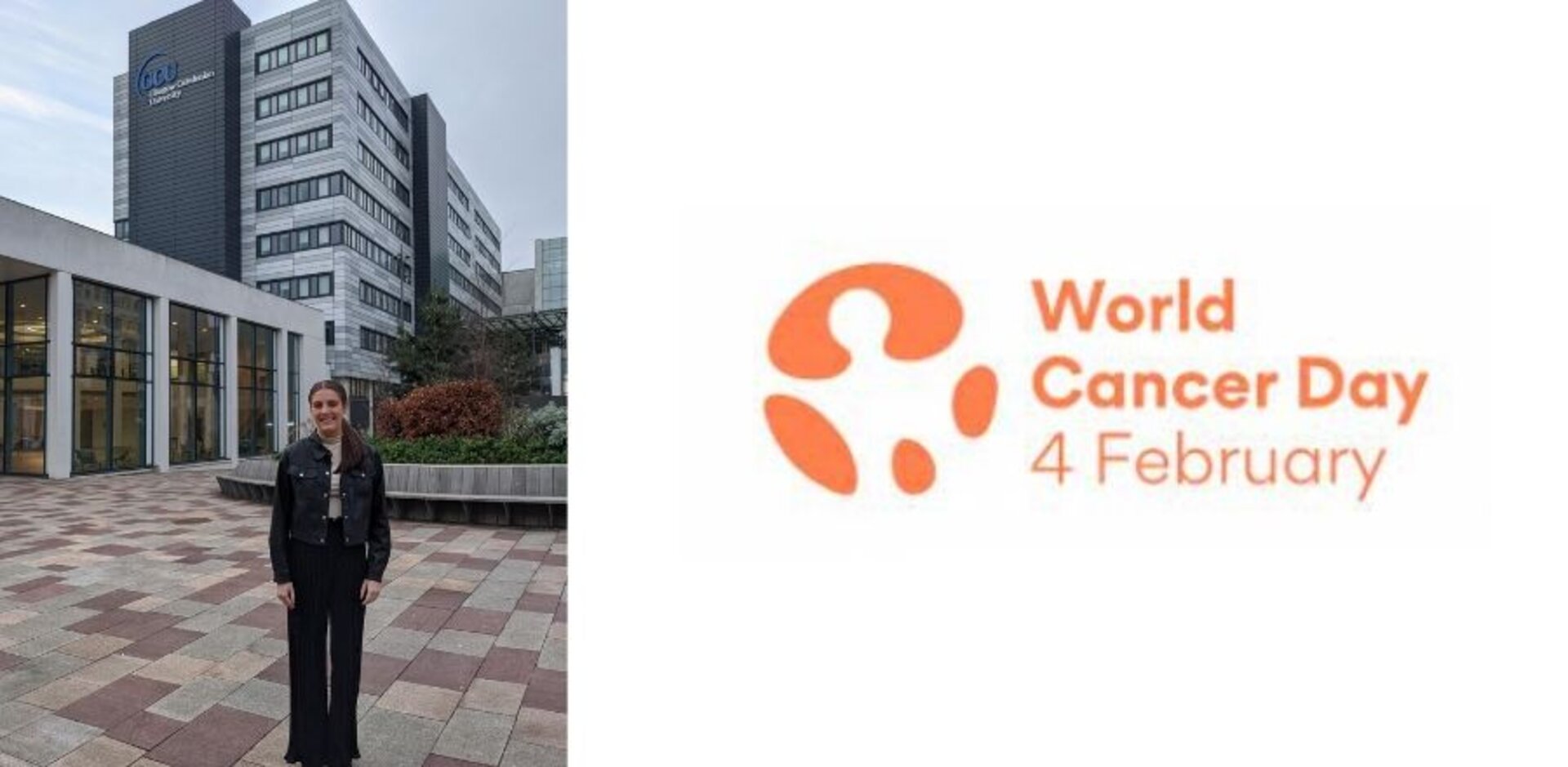World Cancer Day – if in doubt get it checked out

As part of World Cancer Day on Friday 4 February, a Radiotherapy and Oncology student is encouraging the GCU community to trust their gut when it comes to symptoms; and seek guidance through a GP - rather than Google.
With 375,000 new cancer cases in the UK every year, second year student Freyja Muir wants everyone to recognise that it’s better to be safe than sorry and that any stigma should be put to one side when it comes to such a serious disease.
She said: “I think a lot of people are embarrassed and don’t want to go for something that’s potentially nothing.
Cancer isn’t something that only affects older people, so I think it’s important to always know what to look out for - with breast cancer especially, you should know to look for lumps.
Any changes in your body at all are worth keeping an eye on but don’t go online and Google symptoms, you’ll never get a reassuring answer. Instead, you should monitor it for a few weeks and if it doesn’t go away then get in contact your GP.
It’s really important that you trust your gut because a doctor would much rather you got it checked than leaving it to develop. Even something that’s minor, if caught early, can be treated very easily; when it’s at a later stage it becomes a lot more difficult.
She added: “One thing we can all do is try and live a healthy lifestyle. Smoking and a poor diet can be factors in getting cancer but even environmental factors like pollution can have an impact. It’s just vital that you’re aware of how you’re living life and think carefully about keeping healthy and well.”
Freyja herself is all too aware of the dangers after her mum was diagnosed with breast cancer six years ago. Despite the anguish of having to see a loved one go through treatment, Freyja explained that the experience actually led to a positive development in her own life.
She explained: “I decided to study Radiotherapy and Oncology when my mum went through breast cancer five or six years ago.
Her treatment happened to fall during the school holidays, so my sister and I would go with her and spend hours sitting in the Radiotherapy Department. The radiotherapists were always so lovely and had such a positive impact on all of us. My mum didn’t dread going and at the end of her time in hospital, she actually said how much she would miss them; because they were just so lovely.
The whole experience made me realise that helping people in a similar situation was what I wanted to do with my life. I just love having that chance to be a positive influence during someone’s treatment and be that little bit of light in their day during such a difficult time.”
By Ross Clark
Got an SHLS or GSBS story? Email me at Ross.Clark@gcu.ac.uk or message me on Twitter
